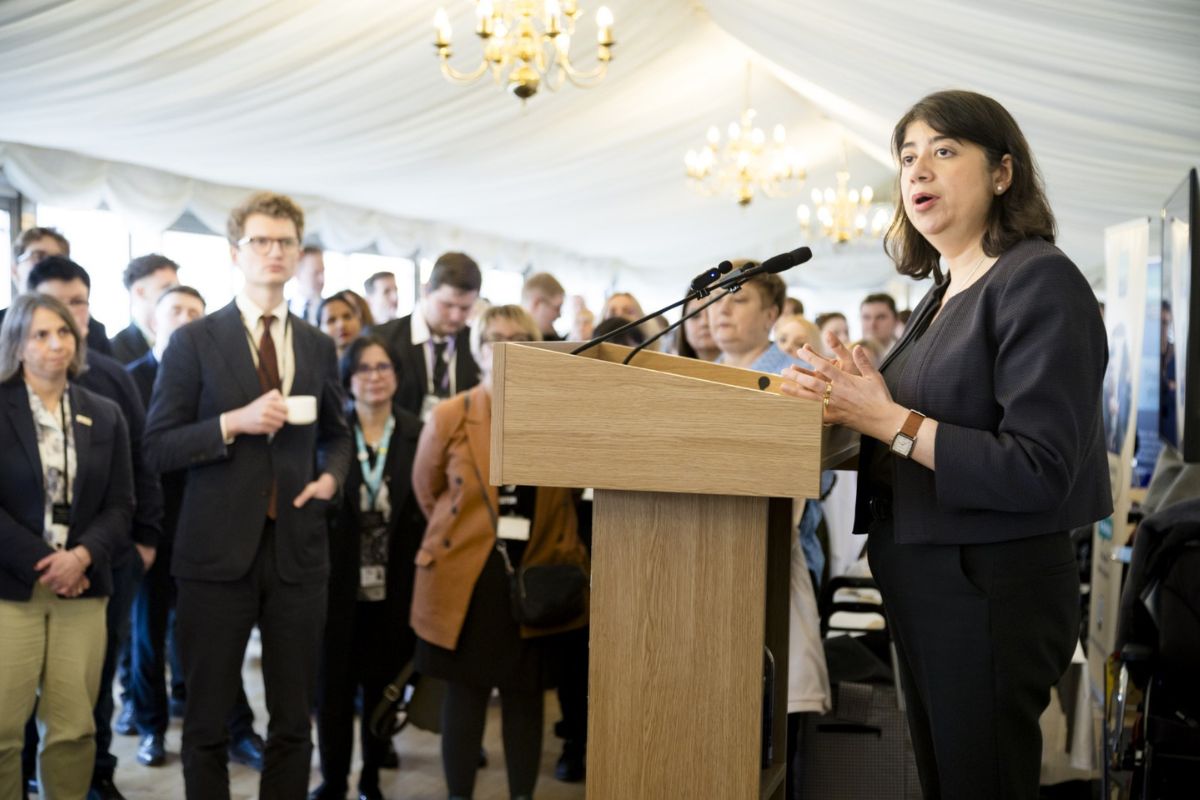Shadow Ministers Unite for Specialist FE Commitment in Future Labour Government

Shadow Ministers join forces to pledge ‘joined up’ approach to specialist FE under future Labour Government at college association manifesto launch.
The Shadow Minister for Skills, Seema Malhotra MP, has pledged that an incoming Labour government will work with local authorities to take a more ‘joined up’ approach to specialist further education (FE) to prevent young people with special educational needs and disabilities (SEND) from “falling through the cracks” of the education system.
Her comments came at the launch, yesterday, in the Houses of Parliament of the National Association of Specialist College’s (Natspec) manifesto, ‘Unlocking Potential’, hosted by Dr. Lisa Cameron MP, Chair of the All-Party Parliamentary Group (APPG) for Disability.
Natspec’s manifesto calls for a commitment to prioritise three key areas within specialist further education: access, quality, and post-educational opportunity.
In a show of the Labour Party’s commitment to its collaborative approach to specialist FE, the Shadow Minister for Children and Early Years, Helen Hayes MP, whose brief includes SEND provision, was also in attendance.
Speaking in front of an audience of 200 attendees, including students and college leaders, Mrs Malhotra pledged that under a Labour government specialist education services would be “joined up” with local support and government services as “our education and care systems too often fail to meet the needs of those with SEND.”
She also noted that “tackling barriers to opportunity is one of the Labour Party’s primary missions. We can only grow our economy by investing in talent and skills, and by making sure that everybody has the opportunity that is right for them.”
Manifesto
Natspec is the membership association for organisations which offer specialist provision for students with learning difficulties and disabilities. Their 2024 manifesto outlines their key asks for the specialist further education (FE) sector. It calls on policymakers to recognise the importance of FE to the SEND system.
The manifesto makes clear that the incoming government will inherit a set of issues relating to SEND that urgently need resolving, primarily due to inadequate local authority funding as a result of government policies that exclude specialist providers. For example, despite specialist FE providers catering for roughly ten per cent of the FE population, the 2023 SEND and Alternative Provision Improvement Plan primarily focuses on children of school age.
The event came just weeks after research conducted by Special Needs Jungle found that only one per cent of funding for new SEND places is going to post-16 providers, emphasising the lack of recognition that Natspec’s manifesto aims to mitigate.
To resolve these problems, Natspec’s manifesto calls for:
- Fair access to specialist FE for those learners who need it.
- Investment in the specialist FE sector to ensure high quality provision is available to these learners.
- A joined-up approach across government departments, so that young people with more complex needs have the support they need to thrive once they leave college.
The system Natspec envisions is dependent on there being an appropriate balance of mainstream and specialist FE providers in each local area, all with sufficient funding to enable them to deliver high quality programmes. These providers need to be able to recruit and retain staff with appropriate expertise in a range of disciplines.
They highlight that an effective system also requires local authority staff to have a secure understanding of both learner needs and local and regional provision, along with sufficient resources to fulfil their statutory duties.
Dr Lisa Cameron MP, the Chair of the All-Party Parliamentary Group (APPG) for Disability, hosted the manifesto launch, welcoming more than 20 MPs, including prominent voices within the SEND policy debate.
In addition to Mrs Malhotra, speeches were made by Claire Howard OBE, Natspec’s Chief Executive Officer, Dr Lisa Cameron, and three students from Natspec’s association colleges.
Speaking after the event, Dr Lisa Cameron MP, Chair of the All-Party Parliamentary Group for Disability said:
“This is such an important manifesto for all parliamentarians across all parties. To be a part of the APPG for Disability for the past eight years has been such a privilege for me as I have met so many wonderful people, and they have told me from the start that this is about equal opportunity.
“When people can’t reach their full potential, it’s not because they don’t have the ability, it’s because they haven’t been given the support to do that. This manifesto is vital in putting equal opportunity at the forefront. We must work together and collaborate across all parties in both houses to ensure that those with SEND are not falling through the cracks.
“Young people with SEND have a great contribution to make. They are part of our economy and part of the fabric of our society. I look forward to continuing this dialogue with yourselves and taking actionable steps to further progress in this key policy area.”
Clare Howard OBE, Chief Executive of Natspec commented:
“Whichever party leads the next government, it’s essential that they turn their attention to this vital part of the SEND system. Specialist colleges provide for around ten per cent of FE learners with Education and Health Care Plans – around 8,000 learners whose needs cannot be met in mainstream settings.
“The government relies on specialist colleges to provide this essential service but has not been prepared to properly invest in it or fully recognise its contribution. While this is frustrating for specialist colleges, ultimately it’s young people with more complex needs who are suffering as a result.
“Our manifesto sets out the policy changes needed to ensure that they get the high quality education and training they need and the post-college opportunities they deserve.”











Responses